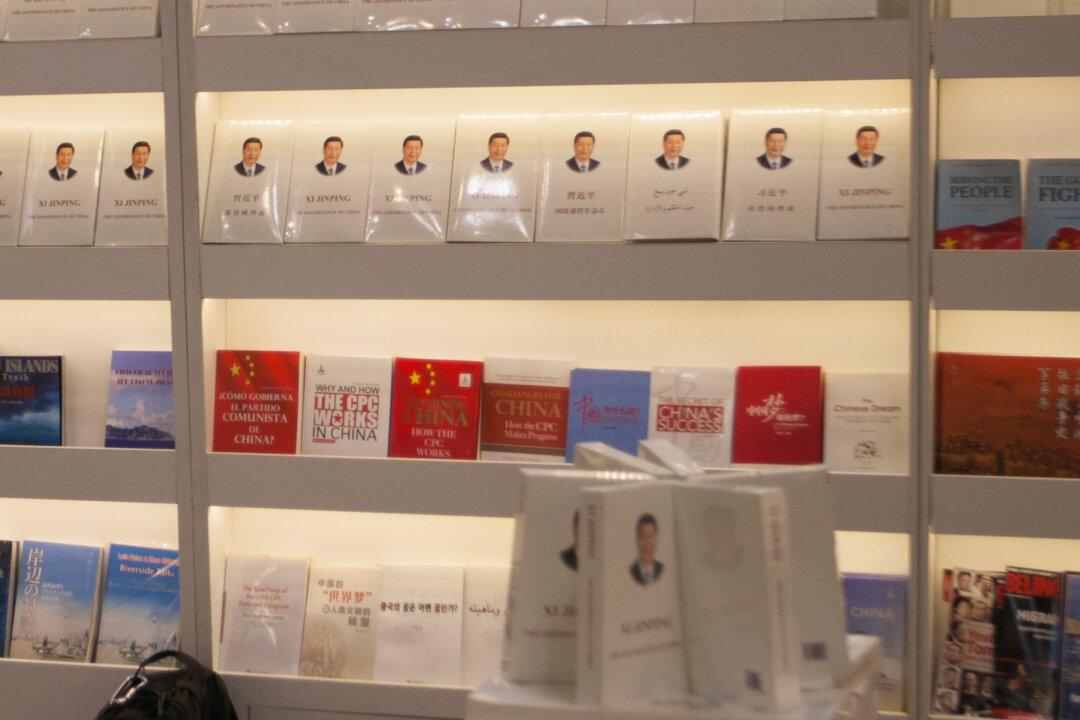NEW YORK—For years, Chinese communist ideologues have complained that the People’s Republic of China does not have enough “discourse power” (from the Chinese term, “huayu quan”)—meaning, the ability to speak and have others listen, and determine the bounds of debate—in international affairs.
Their wish seemed to have come true at a recent publishers’ event in New York City, though. China was the guest of honor at BookExpo America, held at the Javits Center from May 27 to May 29.
There were over 500 Chinese exhibitors occupying 25,000 square feet of floor space.
But despite the abundance of discourse power, it was far from clear that the message was actually getting out.
A huge vertical red banner promoting the Chinese leader’s collected speeches and writings—“Xi Jinping: The Governance of China”—greeted visitors walking into Javits Center North. “Experience the Future Through China” read another.
Bookcases were filled with volumes that set forth China’s ambitions, such as “China Dream: Great Power Thinking and Strategic Posture in the Post-American Era” and “The China Horizon: Glory and Dream of a Civilization State.”
There was an entire section stacked with books that could fairly be understood as anti-Japanese propaganda, though ostensibly treated as the “Pacific War Against Japanese Aggression.” This was exemplified by the mammoth compilation, “Japanese Invasion of China in Pictures”—a 25 volume, 25,000 photograph, 2.5 million word project that took 15 years to complete—which was presented to the Harvard-Yenching Library by the publishers. Anti-Japanese feeling was, banners suggested, a “spiritual base” from which both countries “can build a new bilateral relationship.”
But when it came to presenting their ideas to an audience, the Chinese organizers seemed to be preaching to the choir. The event about Xi Jinping’s collected wisdom was attended almost solely by Chinese people, most of them from state-run media outlets, and people like the vice head of the government agency that censors books, Wu Shangzhi, gave speeches, apparently without irony.
Another highlight was the launch of a book about the founder of communism, “Karl Marx for Young Readers.” The Chinese author, Han Yuhai, extolled the achievements and virtues of Marx and communism, which was described somewhat dubiously as a “’specter' permeating and benefiting the world.” Han said the article was highly popular among Chinese students, while melancholic piano music could be heard in the background.





